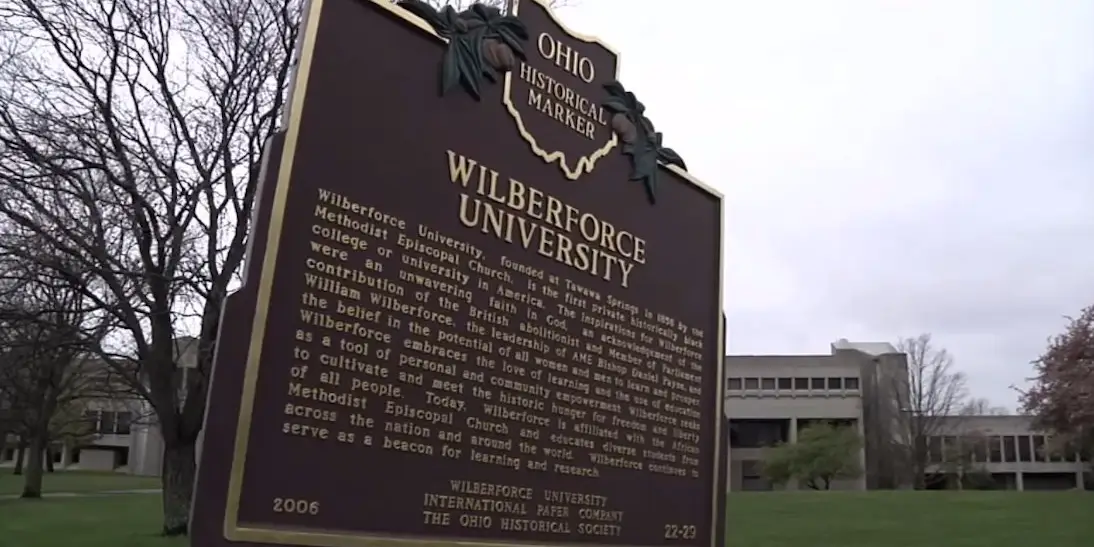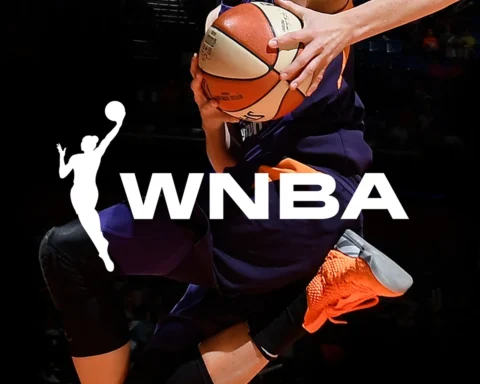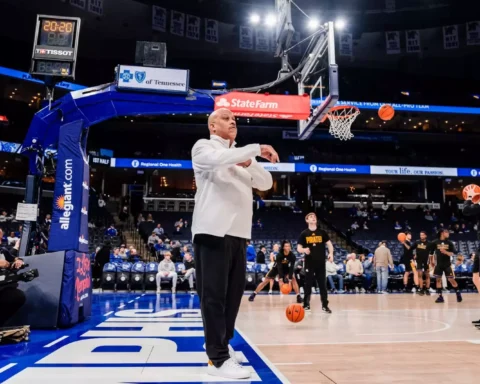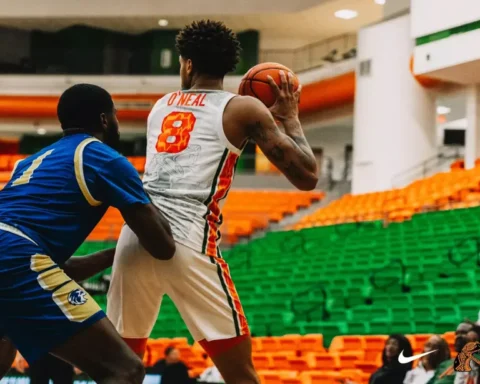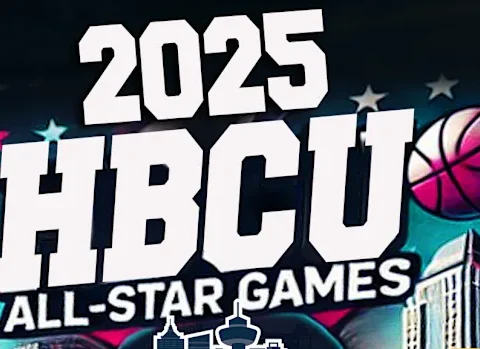For the first time in its history, AND1—the brand that revolutionized streetball and reshaped basketball culture—is planting its flag in the HBCU sports landscape. Its landmark sponsorship of Wilberforce University is a cultural inflection point—a long-overdue investment in Black college athletics. It’s a bridge between streetball’s rebellious spirit and the institutional legacy of HBCUs, where talent has thrived despite systemic underfunding and neglect.
At the center of this movement is Rachel Naughton, Wilberforce University’s women’s basketball coach, who in her first season with the program, wasted no time rewriting Wilberforce’s narrative. An HBCU grad herself, she took over a program that had won just two games the previous season and engineered a nine-win turnaround—without an assistant coach, without deep resources, but with an unshakable vision. Seeing an opportunity where others might have seen limitations, she leveraged her nonprofit’s ties with AND1 to forge a partnership that is as symbolic as it is strategic.
In this conversation, Naughton unpacks the gravity of making history, the broader impact of this watershed deal on HBCU sports, the relentless determination it takes to be a Black woman at the helm of a program determined to command the spotlight—and much more. This conversation has been lightly edited for brevity.
Curtis Rowser III: Can you speak to how your relationship with AND1 came about, and your thought process behind spearheading this partnership between AND1 and Wilberforce basketball?
Rachel Naughton: I have a nonprofit called One Goal One Youth, which is a program that’s aimed to ensure that young athletes—particularly those in underserved communities—have the tools and mentorship, and exposure to academics and programs where they can be successful. And from there I created Ballin’ HBCU, which is an event, in partnership with AND1, designed to introduce high school players to HBCUs. My relationship with AND1 has skyrocketed. AND1 has a rich history of developing Black leaders. I just thought that the synergy was just a blessing. I was hired [as Wilberforce’s head women’s basketball coach] last June, and then here we were in August, proposing sponsorship to a major brand.
AND1 obviously has deep roots in Black basketball culture—how do you think this partnership with Wilberforce represents a bigger movement for visibility and investment in Black college athletics?
Oh, man. It’s just huge for Black athletes and sports as a whole. Just the importance of the access and representation, and even just the opportunity to wear such a rich name like AND1. They elevated the game, and they brought a different light to streetball. They just changed the entire dynamic. AND1 took kids off the street. It was almost like a revolution for us. I always respected AND1 and what they did for our community and for basketball. I just feel like I’m a part of that movement now, because now, we’re doing some big things at the HBCU level. HBCUs are undervalued; we’re underdeveloped; we’re underfunded; and we’re absolutely underrepresented. It just means a lot to me that AND1 is using their platform and branding to elevate our community.
How do you think this partnership with AND1 is going to help you with recruiting and brand identity for Wilberforce?
I’m focused on building on this year’s momentum. I always have to go up—the only way to go is up. So I want to make this next year monumental and make it better than last. When it comes to recruiting, I’ll definitely discuss the partnership we have with AND1 and the great things they’ve done for us, tangibly and intangibly. The whole idea is just fostering a winning culture, and I want to leverage and use this partnership to attract new talent, absolutely, because they made our players feel valued and that was the key, that was the blessing.
You took a team that won just two games last season, and won 11 this year. Was there a specific moment early on in the season you could point to where you recognized your team was buying into the culture you’re working to instill?
The beginning of the season was challenging. I didn’t have that much time to actually get to know them, because most of the players were here already—players I didn’t necessarily recruit. And on top of that, me getting acclimated, moving from Delaware to Ohio. There was a lot going on, and I don’t have an assistant coach, so everything was solely on me—getting preseason together, doing player development, compliance, etcetera… I had to be strategic in placing players in roles where they could thrive. They worked wonders for me. And going into the second half of the season, you could see the momentum change. A lot of people who followed us and supported us noticed how the girls started to gel together.
It’s highly important. I don’t share with them the things that I go through on campus or anything, but I do tell them a little bit so they can understand my resilience. I think a lot of it is something they can actually see, and hopefully learn from. I always tell them, If you don’t take anything from this year, if you don’t become better women, then I’m not doing my job. So, it’s important.
I make sure I’m here on time. I make sure I’m here every day. I haven’t missed a practice. I make sure I’m doing everything I tell them to do. If they do something wrong that doesn’t abide by my rules, there are consequences. So I gotta be the good guy and the bad guy. It has to be a balance, so I can keep them and continuously earn their respect and not lose them. And it’s tough when it’s just one person.
In this era where so many college hoopers are simply chasing the bag, how have the changes to NIL impacted you at the NAIA level and at an HBCU where you’re so under-resourced, relative to PWIs and NCAA institutions?
I always tell people you can’t focus on things that you don’t have control over. So if I can get some players who are just seeking an opportunity, I go out and provide an opportunity for them. For instance, the AND1 sponsorship. Rather than me saying, Dang, I’m not an NCAA school and I don’t have an NIL package—I go out and create one. That’s how I am. I’m very resilient, and I will always be this person. I’m a competitor, I’m a leader, and I pride myself on that. I’ll make an opportunity happen, whatever that entails.

